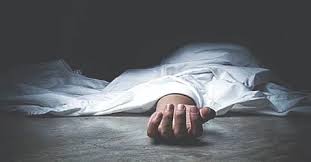Tragedy in the Hostel: Death of AIIMS Patna Student Raises Alarms Over Mental Health and Campus Pressure
In a heartbreaking incident that has sent shockwaves through the medical community and across India, a postgraduate MBBS student at AIIMS Patna was found dead in his hostel room on July 19, 2025. The student, identified as Yadavendra Shahu (also referred to as Raghvendra Sahu in some reports), hailed from Odisha’s Dhenkanal district and was enrolled in the MD program at one of the country’s most prestigious medical institutions.
NATIONAL
Thinkbrief
7/21/20252 min read


The tragic death of Ankit Kumar a second-year MBBS student at AIIMS Patna has left the entire campus in a state of shock and disbelief. On July 19, 2025 the 22-year-old student was found unconscious in his hostel room by his roommate who immediately called for help. Despite all attempts to revive him at the hospital Ankit was declared dead. As authorities begin their investigations into this heartbreaking incident many questions remain unanswered. The circumstances surrounding Ankit’s death have raised concerns about the intense academic pressures medical students face. Preliminary reports indicate that there were no signs of injury or foul play on his body but the cause of death remains unclear. Ankit who hailed from Muzaffarpur had been living in the hostel for over a year and there were no apparent signs of distress the night before his death. His friends and classmates have strongly refuted any claims of suicidal tendencies stating that he had been a dedicated and focused student. However reports of Ankit struggling with the immense stress that comes with pursuing an MBBS degree have sparked a broader conversation about the mental health challenges medical students face. The demanding nature of medical education the constant pressure of exams and practicals and the overwhelming workloads can take a toll on even the most resilient individuals. While some peers recalled his dedication to becoming a neurologist others suggested that the mental strain could have contributed to his deteriorating health.
This tragic event has also highlighted the need for more comprehensive mental health support systems in medical institutions like AIIMS Patna. The college has seen an influx of students in recent years leading to overcrowded hostels long study hours and a lack of adequate recreational spaces. These factors contribute to an atmosphere where students may find it difficult to cope with the academic pressure and emotional stress they experience. Mental health experts have long advocated for medical colleges to adopt a more holistic approach to student well-being. The overwhelming academic environment often pushes students to the brink of burnout with little room for relaxation or socialization. This tragic incident has ignited calls for improved counseling services and stress management programs to ensure that students are equipped with the mental and emotional resources they need to succeed. AIIMS Patna administration has expressed its condolences and pledged to review the mental health services available to students. They have promised to enhance counseling services and introduce wellness initiatives in the hope that future tragedies can be prevented.
As the investigation into Ankit Kumar’s death continues it has become clear that the pressure on medical students in India is a growing concern. This incident serves as a grim reminder that academic success should not come at the cost of mental health. The importance of providing a balanced and supportive environment in medical education cannot be overstated. This situation has also underscored the fact that institutions like AIIMS Patna must take proactive steps to address the mental health crisis among their students. The grief felt by Ankit’s friends classmates and faculty members is immeasurable but it also raises an important question for the entire medical community: Are we doing enough to support the emotional well-being of our future doctors? This case serves as an urgent wake-up call for medical institutions nationwide to invest in the mental health of their students. The emotional and psychological well-being of students should be a priority as they train to become the healthcare professionals of tomorrow